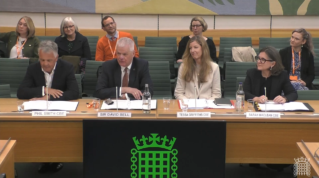As a new government agency is birthed, there are two ways of looking at it.
The first is: here we go again. The same civil servants, same resource constraints, same ambitions limited by practicalities – just a different name above the door. A press release creating the impression of change.
When it comes to Skills England, this cynicism feels reasonable. Its new responsibilities are remarkably like those of the Institute for Apprenticeships and Technical Education (IfATE): joining up the skills system, employer engagement and approving high-quality provision that qualifies for public money. Having spent nearly four years on the board of IfATE, it was these things that occupied nearly all our time and efforts.
Or should we be more charitable?
A new agency can galvanise activity. It can coordinate action across the government. Provide the opportunity for innovation. Inject new expertise. And it can offer a very clear signal of ministerial priorities.
I think we should be charitable. After all, given the importance of skills, the success of Skills England is in all our interests. So here are three suggestions for making that happen.
Welcome to the (crowded) neighbourhood
The Department for Education (DfE) is not short of acronyms and agencies. Skills England will inherit the same overlaps that IfATE experienced: the Office for Students (OfS) and Ofqual, in particular.
But DfE overlaps are not the only issue. Skills England will need to exercise power across government.
One thing that has always struck me when visiting government departments over the last decade is the volume of people working on skills policy outside the DfE, often in unwitting isolation.
The Department for Work & Pensions has scores of people developing skills policy, given they run Job Centre Plus (which just absorbed the National Careers Service).
The Treasury has some of the most powerful skills officials, given their grip on the money (never forgets it’s the Treasury that rules the roost on the apprenticeship levy). The Department for Transport has a large team given the importance to the sector. And the Digital Skills Council is hosted by the Department for Science, Innovation and Technology. This is repeated across government. And more recently, elected mayors and combined authorities are building armies of skills policy people too.
As a result, I think an opportunity has been missed. Rather than being siloed as an education agency, Skills England should have been set up as a cross-government agency with the necessary clout. This would mean making it a Treasury or perhaps a business department agency.
Failing this, Skills England must swiftly bring together the many hundreds of civil servants working on skills and harness their collective strength and expertise. And while ‘England’ is in its name, joining up with the devolved nations will be just as important: it drives many UK employers mad that they must deal with four distinct skills systems.
The new Skills and de-Growth of the Apprenticeships Levy
The creation of Skills England also confirmed Labour’s commitment to release apprenticeship levy cash (originally 50 per cent, now ‘a proportion’) for non-apprenticeship training.
While many will celebrate flexibility, I think this is a mistake. Not because all training should be done via an apprenticeship (it shouldn’t be, and isn’t) or flexibility isn’t needed, but because of two issues: demand for apprenticeships is massively outstripping supply; and delivering apprenticeships in many universities, colleges, and independent training providers is already only borderline viable.
To put it into context, when I was (until recently) an executive director at UCAS integrating apprenticeships, we built demand to the point where 400,000+ people were interested in doing an apprenticeship, but live vacancies were only around 4,000 – 6,000. We’ve barely scratched the surface on the potential for apprenticeships. So more money is needed, not 50 per cent less. Indeed, less than 1 per cent of the levy is now unspent.
Employers need to be the life and soul of Skills England
Skills England will also have the tricky job of deciding what the non-ring–fenced money can be used for. The easier option would be taking products off the shelf, e.g. qualifications from City & Guilds, or perhaps modular courses from the Open University. The more effective approach would be to copy IfATE’s tried and tested trailblazer groups where employers designed and shaped content directly.
The result was employers giving up their time to shape each of the 800+ apprenticeship standards approved over the last few years, covering about 70 per cent of occupations. This made sure aspiring apprentices were genuinely prepared for the workplace.

















Your thoughts